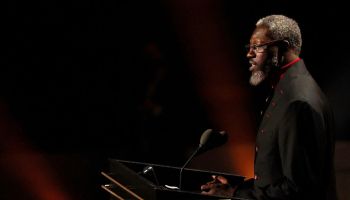The disheartening news about women in the STEM (Science, Technology, Engineering and Math) fields just keeps coming. Following on the heels of the Department of Commerce’s report showing that only 25% of STEM jobs are held by women and that women with STEM degrees are much more likely to work outside their fields than are men, a new series of studies out of the University of Buffalo is raising eyebrows. The studies find that when women are trying to appear romantically desirable, their interest and participation in scientific pursuits declines.
According to Lora E. Park, the studies’ lead researcher:
“When the goal to be romantically desirable is activated, women report less interest in math and science. One reason why this might be is that pursuing intelligence goals in masculine fields, such as STEM conflicts with pursuing romantic goals associated with traditional romantic scripts and gender norms.”
In the first two studies, more than 350 men and women viewed images or listened to conversations that featured romantic, friendship or intellectual goals. Results showed that women exposed to cues related to romantic goals reported less positive attitudes toward STEM and less of a preference for majoring in math or science fields compared to other disciplines. Their attitudes and preferences remained unaffected when they were exposed to intelligence goals or friendship goals.
The third study is where things get interesting. It featured only women who had expressed an interest in pursuing a degree or career in the sciences and asked them to answer nightly questions related to their romantic or intellectual goals and activities on that day and their feelings about their attractiveness and desirability. On days when women pursued romantic goals, they engaged in fewer science or math related activities and expressed a lower interest in these activities on the following day as well.
But don’t stab yourself in the eye with a protractor just yet.
Marie-Claire Shanahan, an Associate Professor of Science Education at Canada’s University of Alberta faults the first study for the vagueness of their measurement question..
“Participating in this study itself might have primed stereotypes. I am speculating here but I would find the whole idea of being romantically motivated to be a negatively-associated female stereotype within an academic environment. It seems at least possible to me that priming women with stereotypical romantic images in an academic setting would elicit stereotype responses.
The Department of Congress report cites a number of factors affecting the low participation rate of women in STEM (a lack of role models, less family-friendly work flexibility among them), but it seems a little rash (and dare I say, dumb?) to rush to add women’s tendency to prioritize their hearts above their heads to that list.














